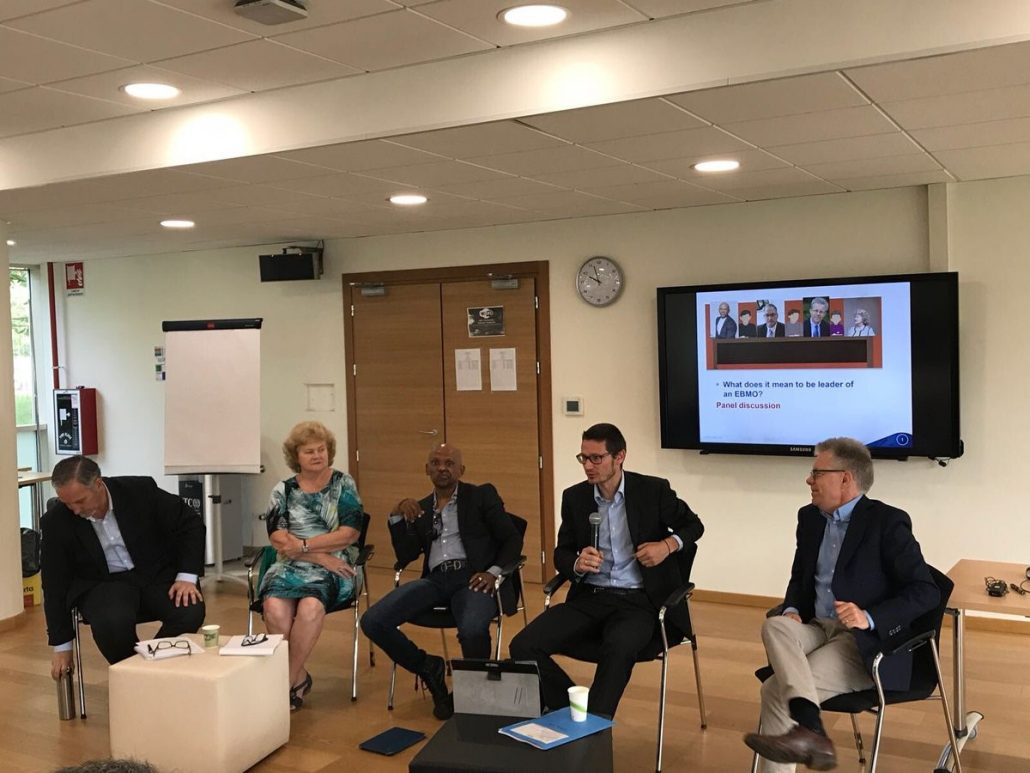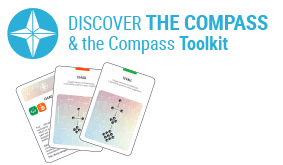Expert Panel

Presenting best practices
Overview
A group of expert speakers present pertinent information to participants. It may convey technical knowledge, engage in debate and/or answer questions. It is a formal synthesis method, which can be used as a balanced and open evaluation tool.
How to use it
- Technical subjects
- Where multiple viewpoint and balanced debate is needed.
- Where minimal participation from a group is likely, or desired.
- For official introductions of new people/roles.
How to apply it
- Identify experts and speakers that are familiar with the subject matter and represent diverse perspectives.
- Arrange the experts’ participation either in-person or using distance learning technology.
- Design targeted questions that will elicit answers requiring technical knowledge and reflection.
- Create a prioritized list of questions so that the most pertinent will be addressed early on, and that others may be discussed if time permits.
- Communicate the questions, as well as the format and logistics, to the experts in advance. Arrange assistance for the preparation of their inputs and check their progress regularly.
- Hold a briefing exercise with the panel experts immediately prior to the session to clarify roles, processes and expectations.
- Introduce the session objectives and panel experts to participants.
- Allow approximately 45 minutes to 1.5 hours for the expert panel session, depending on the number of speakers and nature of the subject matter.
- Open the expert panel with questions that will clearly convey the subject matter and its parameters. Allow adequate time for experts to respond, and intervene if responses are losing focus.
- Redirect the discussion when necessary by returning to the list of questions or asking experts to specify their ideas.
- Improvise questions not included in the list if the discussion takes an unexpected, but productive direction.
- Invite participants to pose questions in a follow-up period. Moderate and paraphrase these as necessary.
- Summarize the expert panel results and outcomes with the whole group.
- Prepare an overview of the expert panel in report form to be included as a follow-up material or on the distance learning platform. Explain key differences and outline the pertinent ideas from the process
How to adapt it
- Use the Celebrity Interview method to create a more interactive expert experience.
- An expert panel can be used as an evaluation tool for a project or activity. Select participants that were highly involved and represent diverse viewpoints to answer questions regarding the outcomes of the activity or exercise.
- Conduct distance research studies with participant panels in Phase 1 of the Blended Learning Approach.
- Create working groups of three of four participants according to backgrounds, interests and expertise.
- Introduce expert panel members to each other online with an icebreaker.
- Explain the expectations, roles and responsibilities early on according to specifically assigned subject matter.
- Participants should be instructed to meet online several times in order to discuss the subject, outline a report structure and formulate key research ideas on the subject matter.
- Consider creating a calendar of key milestones to complete certain aspects of preparation.
- Provide a report template outlining key information fields and make it accessible online. Have each panel submit their report prior to attendance in the face-to-face phase. Allocate time in Phase 2 for a presentation and question period for each expert panel.
- Include the reports in the activity materials and resources for future reference. Either a small selective number of participant panels can be arranged, or assign each participant to an research group.
Case study
Title:
Series of interconnected input highlighted by experts and beyond.
Activity:
Workshop on Enabling Environment for Capacity Building in Medium-Term Policy Design
Contact:
Robin Poppe, R.Poppe@itcilo.org (Learning and Communication)
Description:
The panel consisted of 5 experts and the facilitator. The intention of the facilitator was to have a discussion on a specific technical subject (‘Enabling environment for policy making). Therefore, key questions were checked with the organisers of the workshop beforehand. The facilitator asked directive questions directly to one of the panel members. After the panel answered a few questions, the facilitator asked the audience if they wanted to comment on the discussion or illustrate something with an example. The crucial role of the facilitator is to close the gaps between the statements of the different panel members, by paraphrasing them, so the focus of the audience is brought back to the main discussion topic.
Tips
- Carefully consider the degree of controversy and complexity of the subject matter and create a proposed panel profile to assist the selection of experts.
- Involve the experts in the formulation of interview questions and panel preparation to effectively capture all of the key points and considerations of the subject matter.
- Clarify that the experts are expected to act as individuals and not necessarily representatives of their organizations.
- Use the briefing exercise as a team building tool between the experts to ensure a constructive presentation.
Resources
- See a methods toolkit chapter on expert panels here: http://unu.edu/hq/library/Collection/PDF_files/CRIS/PMT.pdf pages: 87-96
- For more information on the informal version see the KS toolkit guide at: http://www.kstoolkit.org/Expert+Interview









